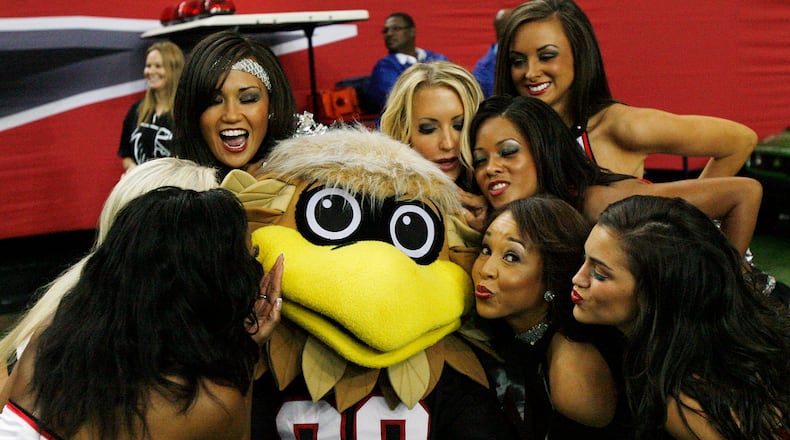History has a way of repeating itself — especially in sports.
Four years ago this month, your Atlanta Falcons hosted the Seattle Seahawks in an NFC Divisional Playoff game to determine which team would play for the conference championship and a spot in the Super Bowl. The Good Guys triumphed in thrilling come-from-behind fashion (after first giving up a big lead, but that’s hardly the point) when Matt Bryant kicked a 49-yard field goal with eight seconds left on the clock.
Of course, we'd already predicted as much in a tale-of-the-tape style analysis of the two teams' respective airborne mascots. In talking to experts of the ornithological and zoological variety, it became clear that a seahawk was no match for a mighty falcon in air, sea — and especially not on a 100-yard field.
Now, stop us if you’ve heard this one before: On Saturday afternoon, the Falcons and Seahawks will square off again for all the divisional marbles. Bryant and his mighty kicking foot are still around from that 2013 win, as are the better-than-ever quarterback Matt Ryan and wide receiver Julio Jones; throw in more recent arrivals like ace running back Devonta Freeman and powerful outside linebacker Vic Beasley Jr. and why should the end result be any different?
RELATED: What's a "seahawk" anyway?
Especially since a falcon still has it all over a — snicker! — seahawk in the mascot battle. Here's a look back at that 2013 story — including the extremely complimentary things even a Seattle-based expert was forced to concede about the superiority of the mighty falcon:
NFL playoff games are all about key matchups:
- Offense versus defense.
- Takeaways versus turnovers.
- Falcons versus … osprey?
It’s true. Members of the Seattle Seahawks — that big, supposedly scary team playing the Atlanta Falcons in Sunday’s divisional playoff game here — have the wrong name splayed across their lummoxy chests.
A “sea hawk” turns out to be nothing more than a trumped-up name for an osprey. Which turns out to be nothing more than … well, what are osprey, exactly?
“They’re not real aggressive or fast,” Georgann Schmalz, who taught ornithology for 28 years at Fernbank Science Center, said of the large birds of prey found around water.
“Falcons are built for speed and are very effective predators, especially against other birds,” admitted Mark Myers, curator of birds at Seattle’s Woodland Park Zoo. “However, since I live in Seattle, I do feel required to say that no falcon can beat a sea hawk.”



